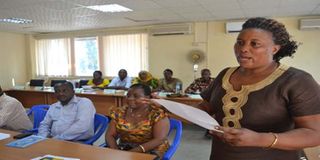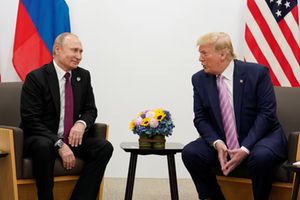How anti-FGM drive earned me a boot

Ms Mariam Mkono, 38, a crusader against female genital mutilation (FGM) from Tarime District speaks during the marking of 16 Days of Activism Against Gender Violence in Dar es Salaam last week. PHOTO| SALHIM SHAO
What you need to know:
However, after falling victim to the practice and witnessing its effects, Ms Mariam Mkono, 38, a mother of five, vowed to protect her three daughters from it. The woman from Tarime District also went against the grain and had her sons circumcised in hospital, to the chagrin of her husband and her in-laws.
Dar es Salaam. Female circumcision has for long been regarded as a symbol of respect and maturity among the Kurya, one of the largest communities in Mara Region.
However, after falling victim to the practice and witnessing its effects, Ms Mariam Mkono, 38, a mother of five, vowed to protect her three daughters from it. The woman from Tarime District also went against the grain and had her sons circumcised in hospital, to the chagrin of her husband and her in-laws.
“In 2012 my husband suggested that our children, both boys and girls, be circumcised. But I could not allow that to happen because I knew how my children would suffer in future.
Not only that, the fear of losing them in case of complications, some of which I had seen over the years gave me courage to resist.
I did not care what could happen to me as long as my children were going to stay safe,” Ms Mkono, who is a Special Seats councillor, told The Citizen last week in Dar es Salaam on the sidelines of a workshop to mark 16 Days of Activism Against Gender Violence.
According to her, the stance she took led to a family conflict that eventually ended in separation and rejection of her children. She said when the circumcision season arrived, she took her daughters to a local rescue camp.
“I have had to bring up all my children alone because they were viewed as an omen to the society,” she narrated.
She recalls: “It was in 1986 when I underwent the cut together with my two younger sisters. I cannot forget the painful experience. We had no medication apart from the traditional ones we were given.
“Though I did not suffer extensive mutilation like many, I still experienced problems when I was giving birth and having sex.”
She said it was sad that her community has refused to accept that FGM and traditional circumcision was a violation of human rights and a form of gender-based violence.
“The matter is getting worse because unlike in the past, parents are subjecting girls as young as 8 to the cut,” she noted. But Ms Mkono feels some progress is being made. Today, she said, at least the youngsters are cut using their own razor blades or knives. “But it’s still not safe for young people.
I have cried upon seeing victims die and some left in forests for fear of a curse.” she says.
They are left there to be eaten by wild animals. The family does not morn neither does it report to authorities.”
“This surely cannot be the kind of life we want to lead this new century,” said the gender activist who is also a CCM Special Seats Councillor in Tarime.
She says cultural beliefs and economic gain by those around the process, including the traditional elders, was the main reason why the practice continues.
“It is huge business if you consider more than 4000 children in a clan are cut in the season, each paying Sh10,000 and there are 13 Kurya clans,” she explained.
Ms Mkono also blames this culture for early marriage and the huge numbers of those dropping out of school.
Ms Mkono, a member of the Termination of Female Genital Mutilation (TFGM) in Tarime says the organisation has been helpful in spreading the message against the practice in the community. “Victims have at least a place to run to.
We will from this year also establish a camp for boys to rescue them from unsafe circumcision.”
Mr Joseph Petro, a male member of TFGM says increased activism is likely to change the way things are done. “We are soldiering on despite challenges like conducting the rituals at night.”
But he admits that female circumcision has largely declined because more people are becoming educated.




